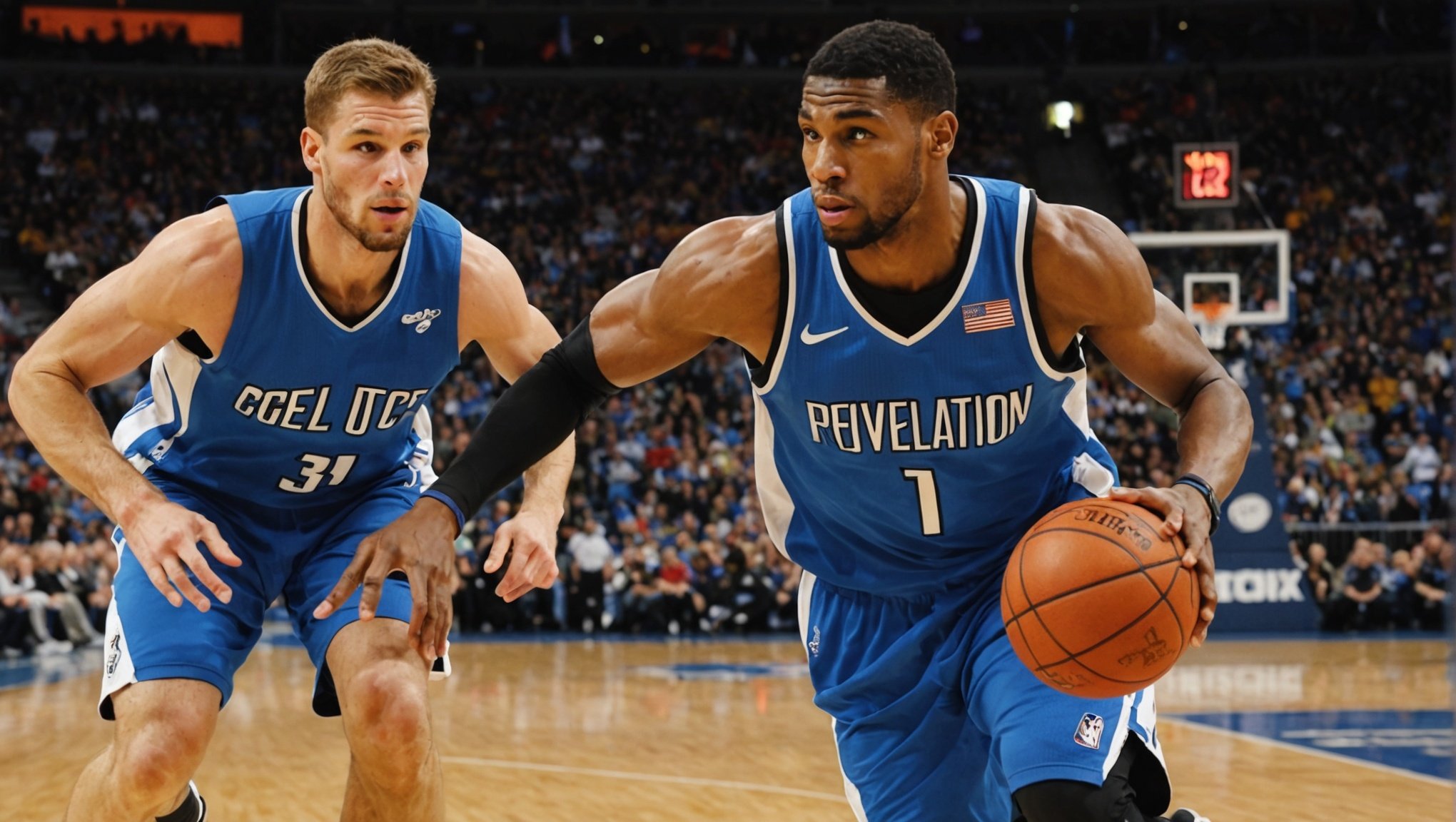Unveiling the Impact of Sports Psychology on Training UK Basketball Athletes
The Foundations of Sports Psychology
Sports psychology, often referred to as the “Father of Sport Psychology” by Coleman Griffith’s pioneering work, has evolved significantly since its inception in the 1920s. Griffith, who taught the first sport psychology university courses at the University of Illinois, laid the groundwork for understanding how psychological principles influence athletic performance and personal growth.
In the context of UK basketball athletes, sports psychology plays a crucial role in enhancing both mental and physical performance. Here’s how it works:
Also read : Top Warm-Up Routines to Elevate Performance for Basketball Players in the UK
Cognitive-Behavioral Approaches
One of the key approaches in sports psychology is the cognitive-behavioral approach. This method focuses on how individual thoughts determine behavior. For basketball athletes, this can mean identifying and changing negative thought patterns that might hinder performance. For example, a player struggling with free throws might benefit from cognitive-behavioral therapy to manage anxiety and build confidence.
Behavioral Sport Psychology
Behavioral sport psychology involves identifying and improving specific behaviors in athletes. This is achieved through techniques based on Pavlovian and operant conditioning. For instance, a coach might use positive reinforcement to encourage better defensive play, such as praising a player for successful blocks or steals.
Topic to read : Top Warm-Up Routines to Elevate Performance for Basketball Players in the UK
The Impact on Mental Health and Performance
Mental Toughness and Anxiety
Studies have shown that psychological skills training (PST) and mindfulness-based interventions can significantly improve mental toughness, reduce cognitive anxiety, and enhance coping skills in athletes. A longitudinal study on futsal players, for example, revealed medium-to-large improvements in these areas following such interventions.
For young basketball athletes, developing mental toughness is crucial. Here are some ways sports psychology can help:
- Mindfulness Training: Encourages athletes to stay present and focused, reducing anxiety and improving performance under pressure.
- Positive Self-Talk: Helps athletes develop a positive mindset, which can boost confidence and resilience.
- Coping Skills: Teaches athletes how to manage stress and adversity, leading to better overall mental health.
Burnout and Recovery
Chronic stress and inadequate recovery can lead to burnout, a significant issue in sports. Research highlights the importance of adaptive defense mechanisms, resilience, and effective recovery strategies in preventing burnout.
Here is a table summarizing the impact of defense mechanisms on burnout:
| Variable | Mean | SD | Skewness | Kurtosis | Correlation with Burnout |
|---|---|---|---|---|---|
| Adaptive Defense Mechanisms | 4.09 | 0.58 | -0.25 | 0.64 | 0.161 (direct effect) |
| Maladaptive Defense Mechanisms | 2.69 | 0.51 | 0.34 | -0.06 | 0.361 (direct effect) |
| Resilience | 39.30 | 7.62 | -0.16 | -0.37 | -0.324 (inverse correlation) |
| Burnout | 2.45 | 0.67 | 0.52 | 0.07 | – |
| Overall Stress | 2.39 | 1.41 | 0.08 | -0.42 | 0.144 (positive correlation) |
| Overall Recovery | 3.54 | 1.17 | 0.03 | -0.13 | -0.143 (inverse correlation) |
This table illustrates how adaptive defense mechanisms and resilience can mitigate burnout, while maladaptive mechanisms and overall stress can exacerbate it.
Practical Applications in Training
Autonomy Support
Coaches who provide autonomy support create an environment where athletes feel more in control of their actions and decisions. This approach has been shown to enhance motivation and overall performance.
Here are some practical tips for coaches to implement autonomy support:
- Encourage Decision-Making: Allow athletes to make some decisions during practice or games, such as choosing drills or strategies.
- Provide Choices: Offer athletes options, like choosing between different warm-up exercises or deciding the order of drills.
- Foster a Positive Environment: Create a supportive and respectful atmosphere where athletes feel comfortable expressing their thoughts and feelings.
Social Support
Social support from teammates, coaches, and family is crucial for the mental health and performance of athletes. Here’s how it can be leveraged:
- Team Bonding Activities: Organize activities that promote team cohesion, such as team-building exercises or social events.
- Mentorship Programs: Pair younger athletes with experienced teammates or mentors who can provide guidance and support.
- Family Involvement: Encourage family members to attend games and practices, providing emotional support to the athletes.
Case Studies and Examples
Elite Athletes
Elite basketball athletes often undergo rigorous psychological training to maintain their edge. For instance, NBA players might work with sports psychologists to develop pre-game routines that help manage anxiety and focus.
A notable example is the work of sports psychologist Dr. Michael Lardon, who has worked with several elite athletes, including golfers and basketball players. He emphasizes the importance of mental preparation and visualization techniques to enhance performance under pressure.
Youth Sport
For young athletes, sports psychology can play a critical role in their development. Here’s an example of how it can be applied in a school setting:
- School Programs: Many schools are integrating sports psychology into their physical education programs. This can include workshops on positive self-talk, stress management, and teamwork.
- Coaching Techniques: Coaches in youth sports can use sports psychology principles to create a supportive and motivating environment. For example, focusing on effort rather than outcome can help young athletes develop a growth mindset.
The Role of the Sport Psychologist
Educational and Clinical Approaches
Sport psychologists can take either an educational or clinical approach when working with athletes. The educational approach focuses on teaching athletes cognitive and behavioral strategies to improve their performance and overall experience in sports. The clinical approach, on the other hand, is more focused on addressing emotional and psychological issues that may affect athletes.
Here are some key roles of a sport psychologist:
- Assessment and Intervention: Conducting assessments to identify areas where athletes need improvement and developing interventions to address these issues.
- Consultation: Working with coaches and other support staff to create a cohesive and supportive environment.
- Education: Teaching athletes and coaches about psychological strategies and techniques that can enhance performance.
Future Directions and Research
Mixed Methods and Systematic Reviews
Research in sports psychology often employs mixed methods, combining both qualitative and quantitative data to provide a comprehensive understanding of the subject. Systematic reviews are also crucial in synthesizing existing research to guide future interventions.
For example, a systematic review on the impact of psychological skills training on athletic performance could help coaches and sports psychologists design more effective training programs.
Technology and Innovation
Technology is increasingly being used in sports psychology to enhance training and performance. Here are some innovative approaches:
- Virtual Reality Training: Using VR to simulate game scenarios and help athletes practice under pressure.
- Mobile Apps: Developing apps that provide athletes with tools for mindfulness, positive self-talk, and stress management.
- Data Analytics: Using data analytics to track athlete performance and mental health, providing insights for personalized interventions.
Sports psychology is a vital component of athletic training, particularly for UK basketball athletes. By understanding and applying the principles of sports psychology, athletes can improve their mental toughness, manage stress and anxiety, and enhance their overall performance.
As Coleman Griffith once said, “The most important thing in coaching is to get the players to play for the love of the game.” Sports psychology helps athletes find that love and passion, leading to a more fulfilling and successful athletic career.
Here are some final tips for athletes, coaches, and parents:
- Seek Professional Help: Consult with a sports psychologist to address specific issues or to develop a comprehensive training plan.
- Practice Mindfulness: Incorporate mindfulness and relaxation techniques into your daily routine to manage stress and improve focus.
- Build a Supportive Environment: Foster a positive and supportive team environment that encourages autonomy, social support, and overall well-being.
By embracing sports psychology, we can create a healthier, more supportive, and more successful athletic community.













